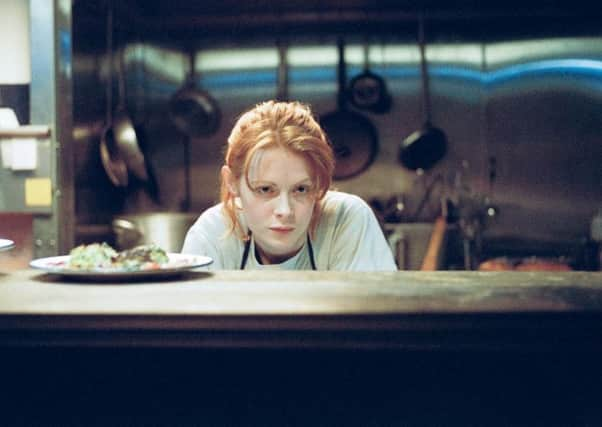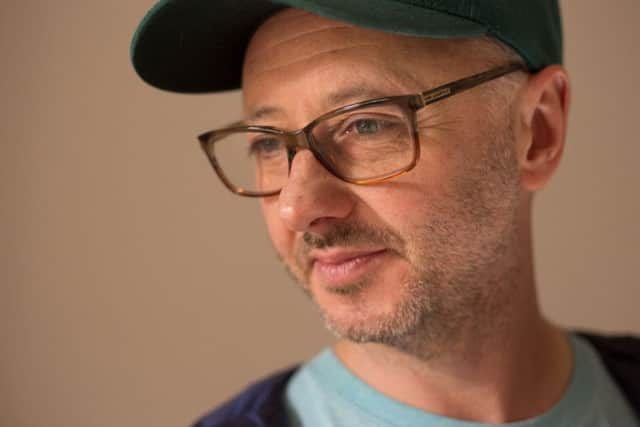Interview: Scottish director Peter Mackie Burns on making his debut feature Daphne


She’s the sort of funny, flawed, fractious character that’s all too rare in British movies, but has become a bedrock of some of the best American indie films of recent years. Whether it’s Greta Gerwig in her self-penned comedies Frances Ha and Mistress America, Jenny Slate in Obvious Child, Lena Dunham in her proto-Girls debut Tiny Furniture, Olivia Wilde in Drinking Buddies, Anna Kendrick in Happy Christmas, Charlize Theron in Young Adult, or Desiree Akhavan in Appropriate Behaviour – US actors and filmmakers have long recognised the creative benefits of building movies around compelling women who drive the narrative. It’s something that prompted Mackie Burns to wonder, “Where’s our version those films?”
“We all know women like that,” he says when we meet the morning after Daphne’s British premiere at the Edinburgh International Film Festival. “But we don’t see them, especially people who are Emily’s age. People in their late 20s/early 30s, they don’t get to see themselves on screen and we thought that was a good enough reason to make a low-budget film – and to make it as truthful and three-dimensional as possible.”
Advertisement
Hide AdThe film actually grew out of a short called Happy Birthday to Me, written by Daphne screenwriter Nico Mensigna, and starring Beecham. Shot guerilla-style for £500 on the streets of East London in 2013, it wasn’t until Mackie Burns started cutting together the footage that he realised the character had a lot more juice than he’d imagined. “We had no monitor while we were shooting, so it was only when I got back to the cutting room that I could see how detailed the work was that Emily was doing. I spoke to Nico and said, ‘let’s talk more about this character.’”


With input from Beecham, they fleshed out an extensive biography for Daphne that ran to a couple of hundred pages. With the short film as a proof of concept, Beecham as the star and a first draft of the script, Burns took the project to The Bureau, the production company behind the award-winning 45 Years. Within 12 months he was on set, “which is an amazingly quick process”.
He’s not kidding. Having trained as a theatre director at what was then the RSAMD in Glasgow (“Kate Dickie was a classmate,” he says), Mackie Burns started out working for the likes of The Tron and The Traverse before making the switch to film in his mid-30s. Though his debut short, Milk, won the top prize at the 2005 Berlin Film Festival, it’s taken him until now to make his first feature.
Which isn’t to say he’s been idle. He’s made documentaries and other shorts, and had two children in the interim. But the development process for features is a protracted one and financing is always precarious. One project – written by Scottish playwright David Harrower and set to star Cillian Murphy and Sally Hawkins – fell apart at the last minute thanks to the financial crisis. “I actually tried to make a couple of films in the last ten years,” he shrugs. “Neither were made, and each of them took about two or three years not to be made.”
Having been on the point of jacking in the film career to do a PhD, Daphne should give him some traction, and not just because of Beecham’s breakout performance. Despite the low budget and the 22-day shooting schedule, it’s a stylish film with more going on visually than tends to be found in much British cinema. Mackie Burns says he studied the way legendary cinematographer Gordon Willis shot Woody Allen’s Manhattan and created a set of rules for shooting Daphne based on Willis’s lens choices and camera placements. His Spanish production designer, Miren Marañón, also saturated the film with colour, both as a low-cost way of making the flame-haired Beecham stand out, and as a way of reflecting the regeneration of the film’s Elephant and Castle-setting.


The latter was something that fascinated Burns, who knows the area well and wanted to capture the ongoing impact of urban renewal – in part because Daphne herself is experiencing a bit of a regeneration. “The question we kept asking ourselves was: how can a normal woman with a normal job live in London. London is a victim of its own success. There’s been a lot said about that, but not a lot in British cinema.”
Advertisement
Hide AdWhat has been brought up a lot, especially in relation to Daphne, is the frustrating and somewhat narcissistic obsession that some commentators and audiences have with a character’s likeability. Daphne might be brash and obnoxious, but that’s what makes her fascinating and human. “I don’t want to over-identify with the characters. I don’t need to like them. Look at Jack Nicholson in Five Easy Pieces,” says Mackie Burns. “What an annoying character – and he’s great.”
But maybe the upshot of Daphne is that more interesting, diverse and original characters like her will start appearing on British screens. One of Beecham’s best friends, Phoebe Waller-Bridge, was writing her own (now-hit) show Fleabag while they were working on Daphne and Mackie Burns thinks the tide might finally be turning here thanks to the way people like Waller-Bridge and actors of colour, such as Daphne co-star Nathaniel Martello-White, are taking charge of their careers. “I think there’s something entrepreneurial about this,” he says. “Nathanial Martello-White is a good example. He plays David, the love interest in the movie, but he writes plays and makes short films as well. He took a short film [Cla’am] to South by Southwest when we took Daphne. And The Bureau is developing his first film. There’s a real sense of agency in people in their late 20s and early 30s now.”
*Daphne is out now